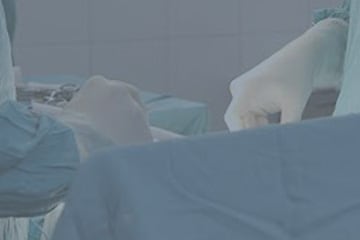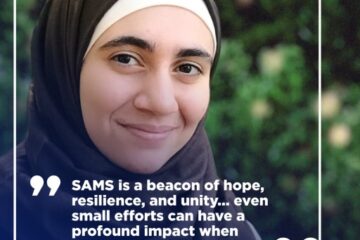August 31, 2017
My GP colleague left in the last week and I found myself the sole ‘generalist’ medical provider. There was an American obstetrician & gynaecologist who was newly arrived and would care for most of the women’s health patients. Having been there for two weeks, I was allocated the clinical lead. This left me slightly anxious but I welcomed the opportunity to lead and learn.
A memorable moment during this time was when one of the male translators, of Syrian background, was with me seeing a young male patient. The patient had been persistently disruptive and verbally abusive in the triage area. Our translator wanted to come in with me to in case things escalated. I sat next to the patient on the examination trolley. He demandingly told me he wanted something to help him sleep. He’s been suffering with insomnia since arriving at the camp three months ago. I encouraged him to explain what was keeping him up at night. He told me the horrors of life in Syria – his ten-year old brother was shot and died in his arms. He lost four other members of his immediate family in a day. He himself was shot four times and operated on in Syria with a difficult recovery period. Since then he has been suffering with flashbacks, depression, self-harming behaviour and multiple suicide attempts. His mind runs vividly every night of all he had experienced and witnessed.
The patient was replaying these stories with an unbelievable amount of flatness. I suppose it’s a form of desensitisation – a coping mechanism. He turned to the translator and spoke to him in Arabic about how he would react to these injustices and I could see our translator getting tearful (being of Syrian background I suspected he might have been exposed to similar experiences). I chatted to the patient for a while longer about trauma, the varied reactions people to have to trauma and explained that medication isn’t the best answer as it does not solve the underlying problem.
The answer was to get him talking in a safe environment with a mental health provider about his experiences, his losses, his worries, his anxieties, his mood and his potential recovery. The patient surprisingly agreed to this plan with ease. He understood my explanation and reason for not giving him the medication he initially wanted and left the room after giving us both a welcomed ‘thank you’.
When the patient left the clinic, I took the translator back into the room to let him process what he had just heard. It is one thing to hear a traumatic story; it is another thing to translate it. He was upset and told me that there were things he couldn’t bring himself to translate and he was sorry for that. He had in fact had similar experiences with his own family. I reassured him that for this patient, that was the right thing to do. The patient needed another person in the room whom he could relate to. I was not the one who needed to listen to that story – the patient was telling it to him. I encouraged them to treat themselves not just as translators but also as another person in the room…listening and reacting to the stories told to them.
Their role was not to sit there like robots translating word for word. Their role was to acknowledge themselves as an individual integral to the consultation and that sometimes by nature of their Arabic background the patients will talk directly to them – accepting they can relate to experiences I can’t possibly imagine. I encouraged them to think for themselves, voice their concerns appropriately and if they can offer the patients something I can’t then they should by all means offer it. Doctors, nurses, translators, administrators, co-ordinators – we all had our role to play, we all had something unique in our backgrounds that we could use to help and heal. No role was more important than the other. We had one mission – to ease human suffering – and we all had something to bring to the table. I encouraged everyone to do so because of our different backgrounds not in spite of them.
I have no doubts that I will want to take on further volunteering missions with SAMS in the future. As much as I was told how much we were helping the patients in the camp I felt they gave me so much more in return. Strangely, the hardest part of the whole experience was coming home. The moment we stop to process, we realise how capable our hearts and minds are to take on all the burdens of these experiences but also to take on the challenges of being better, of feeling more, of giving more. With the increasingly medicalised world we live in I became increasingly disillusioned with the profession. I found that the strong, often extreme, emphases on rationality, narrowed measures of intelligence and functionality were turning Medicine cold and soulless. Through practices of desensitization and detachment it has become easier and easier to lose our sense of responsibility to one another as healthcare professionals, as patients and as human beings.
The experience I had with SAMS reminds me of the potential medicine has to centre itself and awaken its humanitarian side. For that, I am forever grateful.
Dr. Aqilah Vilcassim MBBS recently joined the Syrian American Medical Society for a medical mission to Greece, where SAMS is providing care in three camps of Northern/Central Greece. In part 2 of her blog post series, she shares moments from her mission.



